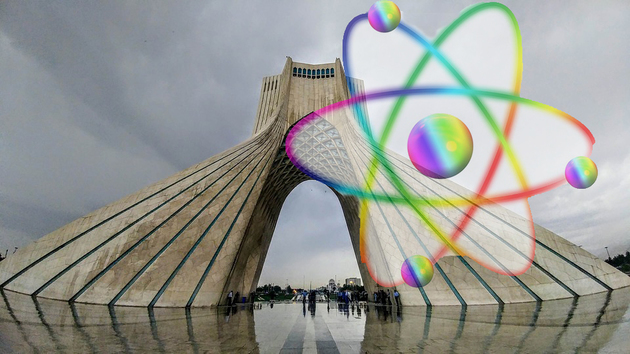The eighth round of Joint Comprehensive Plan of Action (JCPOA) revival talks began this week in Austria. The seventh round ended with U.S. and European frustration and warnings that the window to reach a diplomatic, non-military solution to Iran's growing nuclear capabilities was closing, Newsweek writes.
Amid reports that the U.S. has considered military strikes on Iran and with continued Israeli threats to do the same, top Iranian military officials have been issuing warnings of their own that enemy action could prompt a bloody and costly regional conflict.
Major General Gholam Ali Rashid, the commander of the Islamic Revolutionary Guard Corps' (IRGC) Khatam al-Anbia headquarters, told reporters on Wednesday that recent and future IRGC drills should stand as a warning to those considering attacking Iran. "We want the enemy not to test our will and power because it will not be able to bear the costs of a massive and all-out confrontation," the commander said, Fars News Agency reports.
Last week, Iranian Chief of Staff Major General Mohammad Hossein Bagheri and IRGC commander, Major General Hossein Salami, both said the recent Great Prophet 17 military drill was a direct response to aggressive Israeli rhetoric.
Bagheri dismissed reports of imminent Israeli action as "empty threats," while Salami warned: "If the officials of this regime do a damn thing, we will cut off their hands." Bagheri also said this week that Israel's Dimona nuclear facility would be "a prime target" of any Iranian retaliation to a strike on Iran's nuclear facilities.
Israeli forces have reportedly been preparing a range of strike options to halt Iran's nuclear program, which the Israeli government has long considered an existential threat. Defense Minister Benny Gantz said this December he had ordered the Israel Defense Forces to "prepare for the Iranian challenge at the operational level."
Israel is continuing strikes against Iranian and allied targets across the border in Syria. Tehran, the IRGC and Iran's network of proxy forces—among them the Lebanese Hezbollah militia—have been vital in helping President Bashar al-Assad forces re-take much of the war-torn country.
Iranian forces and their proxies have established military positions throughout Syria, including along the Israeli border. Syria serves as a key conduit for Iranian money, fighters and arms to reach proxies in Lebanon, and the Palestinian West Bank and the Gaza Strip.
Successive Israeli administrations have committed to preventing Tehran from gaining a permanent foothold in Syria and called for U.S. support to do so.
Israel also opposes the JCPOA nuclear deal—which capped Iran's nuclear capabilities for 10 years—and former Prime Minister Benjamin Netanyahu seemed a powerful influence on former President Donald Trump's 2018 decision to withdraw from the accord.
JCPOA signatories—Iran, the U.S., Germany, France, the U.K., Russia, China, and the European Union—are hoping to revive the deal via the ongoing Vienna talks. Russian and Iranian officials told reporters this week that the eighth round began promisingly. Tehran said success remained possible if other negotiators showed "good faith," while Russia's lead envoy praised "indisputable progress."
American and European officials expressed frustration after the seventh round of talks ended without a deal. U.S. Special Envoy for Iran Rob Malley accused Tehran of "trying to build leverage by expanding their nuclear program and hoping to use that leverage to get a better deal."
Meanwhile, President Joe Biden has been reviewing U.S. military options in case diplomatic efforts fail, according to a report from The New York Times, as well as considering new sanctions on Tehran. After the seventh round of talks, Secretary of Defense Lloyd Austin told reporters: "The president has made clear that if diplomacy fails, we are prepared to turn to other options."
White House press secretary Jen Psaki also hinted at military action. "Based on the outcome of the last round of talks and the ongoing advancements in Iran's nuclear facilities, we are laying the path for...the groundwork for another path entirely," she told a press briefing earlier in December.






